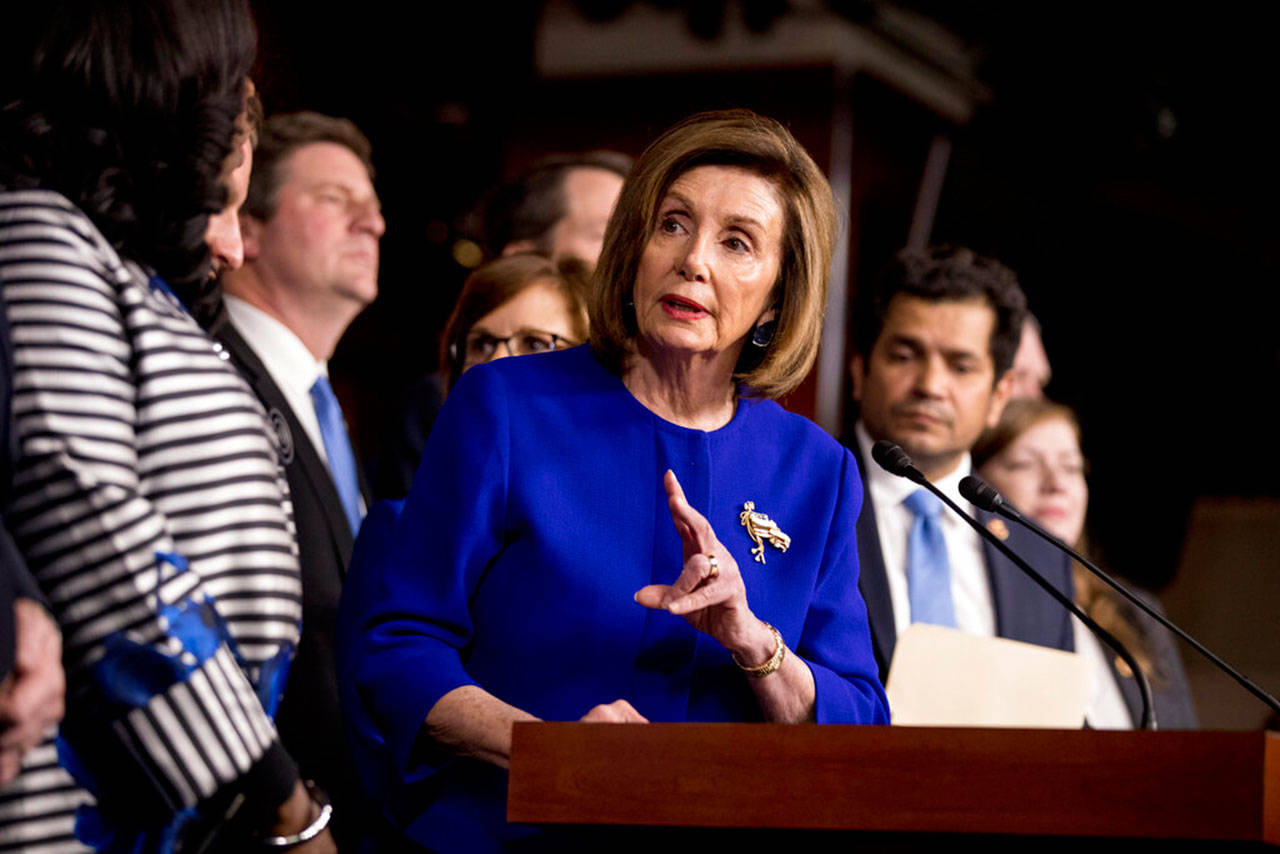By The Herald Editorial Board
Leaving aside judgment on whether trade wars actually are “good and easy to win” — as President Trump tweeted in 2018 — we know that they don’t proceed quickly.
But at least one trade deal — one of importance to Washington state’s economy and employment — appears to have reached an encouraging milestone with a reported accord between the White House and House Democrats to ratify the USMCA, the successor to the North American Free Trade Agreement adopted 25 years ago.
The United States-Mexico-Canada Agreement, accepted by the three countries in October 2018, has since awaited ratification by Congress, but is expected to soon win approval in the House. As with other legislation passed by the House but since stalled, consideration by the Senate is not expected until January or February.
The wait has not been without its risks to U.S. trade with the country’s immediate neighbors to the north and south. Even with the deal’s provisions set and accepted among the three countries, it still took the Trump administration six months to drop tariffs on steel and aluminum imports from Mexico and Canada. Even then, Trump — pushing Mexico for concessions on immigration — threatened broader tariffs less than a month after lifting them this May, before declaring the tariffs “indefinitely suspended.”
Senate review of the trade deal is reasonable, but should not be drawn out further than the first part of the year. Farmers, manufacturers and others in the U.S. and in Washington state are in immediate need of some relief, predictability and a return to something close to normal on trade.
“The USMCA or the ‘new NAFTA’ is critical for Washington state’s interests and is a much-needed positive step in an otherwise uncertain trade environment,” Lori Otto Punke, president of the Washington Council on International Trade, the Seattle-based trade policy organization, said in a release Tuesday.
Here’s how critical:
Canada and Mexico are the second- and third-largest trade partners for the state, after China, according to a WCIT analysis of the USMCA released in late 2018. For 2017, the two countries represented nearly 13 percent of the market for the state’s exports, totaling $9.8 billion for both countries. That represented a 6 percent increase over 2017, but was a decline in exports to the two countries from 2013’s nearly $13 billion of goods and services.
Such exports in 2017 touched a range of employers across the state, including aerospace ($1.4 billion), agricultural products ($572.2 million), fresh or frozen seafood products ($216.9 million), other manufactured goods such as fuels ($1.4 billion) and industrial machinery ($958.4 million), according to the WCIT report.
Additionally, the state’s ports, highways and rail lines facilitate exports from other states, making Washington state a vital gateway for trade.
Combined, more than 330,000 jobs in Washington state are tied to its exports and trade globally, third in the nation behind Texas and California.
Of particular importance to the state’s dairy industry are provisions in the USMCA that will encourage a more open market for Washington state dairy products in Canada. That industry could use a trade win right now. A Lynden dairy farmer, in a commentary published last month in The Herald, said that only about 375 dairy farms remain in Washington state from the more than 1,600 farms in the state 25 years ago.
The wait for ratification has brought further improvements. While White House hyperbole has sold the pact as “the best trade agreement ever negotiated,” both the Trump administration’s trade team and House Democrats touted changes to the original agreement related to worker protections, the environment and the costs of medications. Neither Canada nor Mexico are expected to object to the recently negotiated changes.
That good news stands in contrast to the state of trade negotiations between the United States and China, which accounts for nearly a quarter of this state’s total export market.
As recently as October, the president had announced China and the U.S. were near agreement on “phase one” of a deal. But just last week, Trump said he might consider waiting until after the 2020 election to reach a trade pact with China. On the same day, he proposed new tariffs for industrial metals imports from Brazil and Argentina and tariffs of up to 100 percent on French wine, cheese and other agricultural products, retaliation for a French digital services tax.
Renegotiations of global trade deals were long overdue. The North American Free Trade Agreement, a quarter-century old, lacked language that recognized recent developments in internet technology and changes in markets. And agreement is needed between the U.S. and China to address the theft of intellectual property and forced technology transfer.
Considering a likely lengthy path toward resolution of trade differences with Washington state’s leading export market, state businesses and workers need to see timely Senate consideration and congressional ratification of the USMCA, a return to normal trade relations among those three countries and the end of at least one long and costly trade war.
Talk to us
> Give us your news tips.
> Send us a letter to the editor.
> More Herald contact information.

























